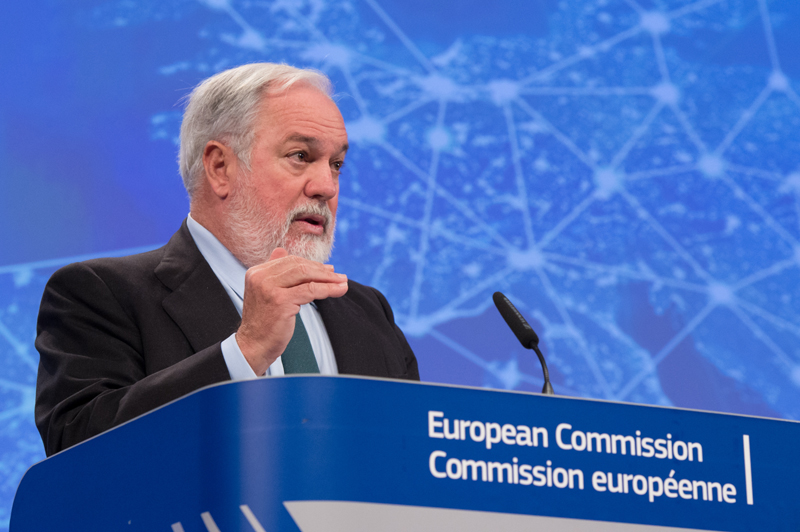
Renewable energy: Catalyst for a clean energy transition
The Paris Agreement is an unprecedented achievement in the fight against climate change. A record number of countries came together, first in the French capital for the COP21* conference in November-December 2015 and then formally to sign the agreement at the UN on 22 April 2016, to ensure that future generations enjoy a stable, healthy and habitable world. The agreement sets us on a path to limit global temperature rise through reduced emissions.

This reduction can only be achieved through far-reaching changes to our energy system–something recognised in Paris. There was a clear acknowledgement that clean energy can reduce emissions and help achieve global climate goals, while at the same time drive our economies forward. Half of the climate plans that countries put forward for COP 21 include explicit energy targets, mostly focusing on increasing renewable energy sources. This sends a clear message to stakeholders, investors, businesses, civil society, and policy makers: transition to a clean energy economy is not a fad, it is the new reality.
What we have achieved so far
In the European Union we are embracing the clean energy transition. An effective way of doing so is through the development of advanced and competitive green technology–we want Europe to be the world leader in this field. To work towards this goal we have set ourselves short and mid-term targets of a 20% share of renewables in our energy system by 2020, and 27% by 2030 . Achieving these targets won’t be easy, but we have set up the instruments and tools necessary to facilitate the shift. We have legislation establishing the overall policy for the promotion of energy from renewable sources, including specific national targets to facilitate implementation.
Our efforts are bearing fruit: recent data from the European Environment Agency for 2014 demonstrate that, thanks to renewables, fossil fuel use has been reduced by an estimated 114 Mtoe (megaton oil-equivalent), comparable to the fossil fuel consumption of France. In absolute terms, Germany, Italy and Spain achieved the largest reduction in domestic fossil fuel use and avoided greenhouse gases emissions, as a result of national renewable energy deployment since 2005. All in all, around 380Mt of carbon dioxide emissions have been avoided, which is equivalent to the yearly emissions of Poland.
These results come together with opportunities for investment and growth. Investments historically allocated to fossil fuels are gradually shifting towards renewables and other sources of clean energy. By 2030, according to the International Energy Agency, we expect investment in renewables to be almost three times the investment in fossil fuel power plants. This is a tremendous opportunity to position European energy companies at the head of the new global market of low carbon technologies and one which they are beginning to seize. According to the 2015 State of Renewable Energies in Europe report, the renewable energy sector generated a turnover of €143.6 billion and over one million jobs in Europe in 2014. Wind energy has been the main driver of growth and jobs, accounting for 324,000 jobs and a turnover of €48.3 billion in the same year.
The way forward
The Paris Agreement vindicates the targets and legislation we had in the EU, and member states have been working hard to achieve these goals. There is a long way to go, and work has begun on proposals and legislation to help in this endeavour.
Our energy system is evolving fast. By 2030 half of all our electricity will be powered by renewables, and in about 35 years it will be carbon-free. That is a big step up from today’s 27.5% renewables. We must prepare our electricity system, making it more flexible and market-oriented. For that reason, we are now finalising a proposal on a new electricity market design to help embed renewables at the heart of our system and way of life. We want to encourage citizens, energy co-operatives and local authorities to take ownership of the energy they produce and consume. Using renewables for our heating and cooling needs is also part of a proposal we aim to put forward this year. Unlocking this opportunity will be huge for our development in renewables, as this sector accounts for half of the energy we use in Europe.
In the EU, we are in the process of reforming and strengthening our carbon market. In 2015 we proposed the reform on the emission trading system (ETS), covering around 45% of the EU’s greenhouse gas emissions. This year, we are working on setting targets for the sectors not included in the previous proposal, such as housing, agriculture, waste and transport. Both initiatives will help us reach our 2030 target of a 40% cut on emissions, and will increase incentives for further deployment of renewable energy.
Proposals to be set out later in 2016 will concentrate on increased regional co-operation for support schemes, and seek to ensure that the EU stays on the path towards becoming the world leader in renewables, which we aim to achieve through our targets, together with our COP 21 commitments.
There is every reason for optimism: Europe and the rest of the world are going in the right direction. Global energy emissions stalled again in 2015, a major reason being the surge of renewable power around the world. This is cause for cheer but not complacency–we must redouble our efforts to allow us to meet our commitments.
*COP21, also called the Paris Climate Conference, denotes the 21st session of the Conference of the Parties (COP) to the 1992 United Nations Framework Convention on Climate Change, see www.cop21paris.org/about/cop21
Visit https://ec.europa.eu/energy/ and www.iea.org
EEA (2016), Renewable energy in Europe: Recent growth and knock-on effects, European Environment Agency http://www.eea.europa.eu/publications/renewable-energy-in-europe-2016
